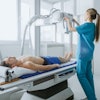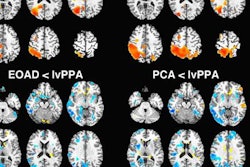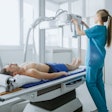Dear AuntMinnie Middle East Insider,
MR enterography (MRE) is rapidly becoming the first-line imaging tool for evaluating the small bowel. It can demonstrate mural and extramural complications, and the high contrast resolution, multiplanar capability, cine imaging, and lack of ionizing radiation make it ideal for prolonged follow-up and for younger patients.
Radiologists in Tehran, Iran, have extensive experience of MRE, and have shared their experiences based on 1,100 examinations. To find out about the top 10 lessons they've learned, click here.
Meanwhile, Egyptian researchers have described how they're using whole-body MRI for the accurate and early assessment of oncology patients. Whole-body diffusion-weighted MRI can provide valuable functional information about tissue cellularity and intercellular water movement, plus differentiate between benign and malignant tumors, they have found. Get the full details here.
Three-dimensional printing is making swift progress in many fields, and it was a hot topic at last week's Arab Health event, which attracted around 103,000 delegates and 4,200 exhibitors from more than 150 countries, according to the organizers. For an overview of the latest developments and challenges in 3D printing, click here.
The political situation facing medical imaging professionals in Turkey appears to be getting worse. A new report discovered the clampdown on healthcare workers is having a serious impact on workflow and patient access to specialists. The 54-page document also lists known cases of Turkish healthcare workers who have been arrested and imprisoned, including radiologist Dr. Murat Acar. Click here to learn more.
This letter features only a few of the articles posted over recent weeks on AuntMinnie Middle East. Please scroll through the rest of our coverage below this message.



















